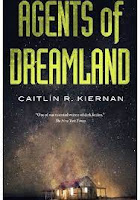Like many people, I watched the Russian army line up around Ukrainian borders in 2021 and into 2022. They are not going to attack, I said. Putin is posturing. There is no way he will take on the West. He doesn't have the economy to drive this. He has shown himself to be more of a businessman, right? And isn't Russia part of the West? And hasn't the West, as of the beginning of the 21st century, figured out that massive wars are not good for economy? I was wrong, badly wrong. And every bomb or missile that lands in Ukraine, killing people, reminds me. Where did I go wrong? Seeing an honest, realistic interview with Masha Gessen, I looked a little deeper into her background, and found what I may have been looking for: a Putin biography, The Man Without a Face: The Unlikely Rise of Vladimir Putin (2012).
The publication date of The Man Without A Face is important. 2012 is after Russia's war in Georgia, i.e. the brutal crushing of Georgian people by Russian military means. It was written after the start of the Syrian Civil War, an event that Russia played an active and vehement role in (razing civilian areas, chemical weapons, and the list goes on). And 2012 is, of course, before Russia's current involvement in Ukraine, starting with the annexation of Crimea in 2014.










